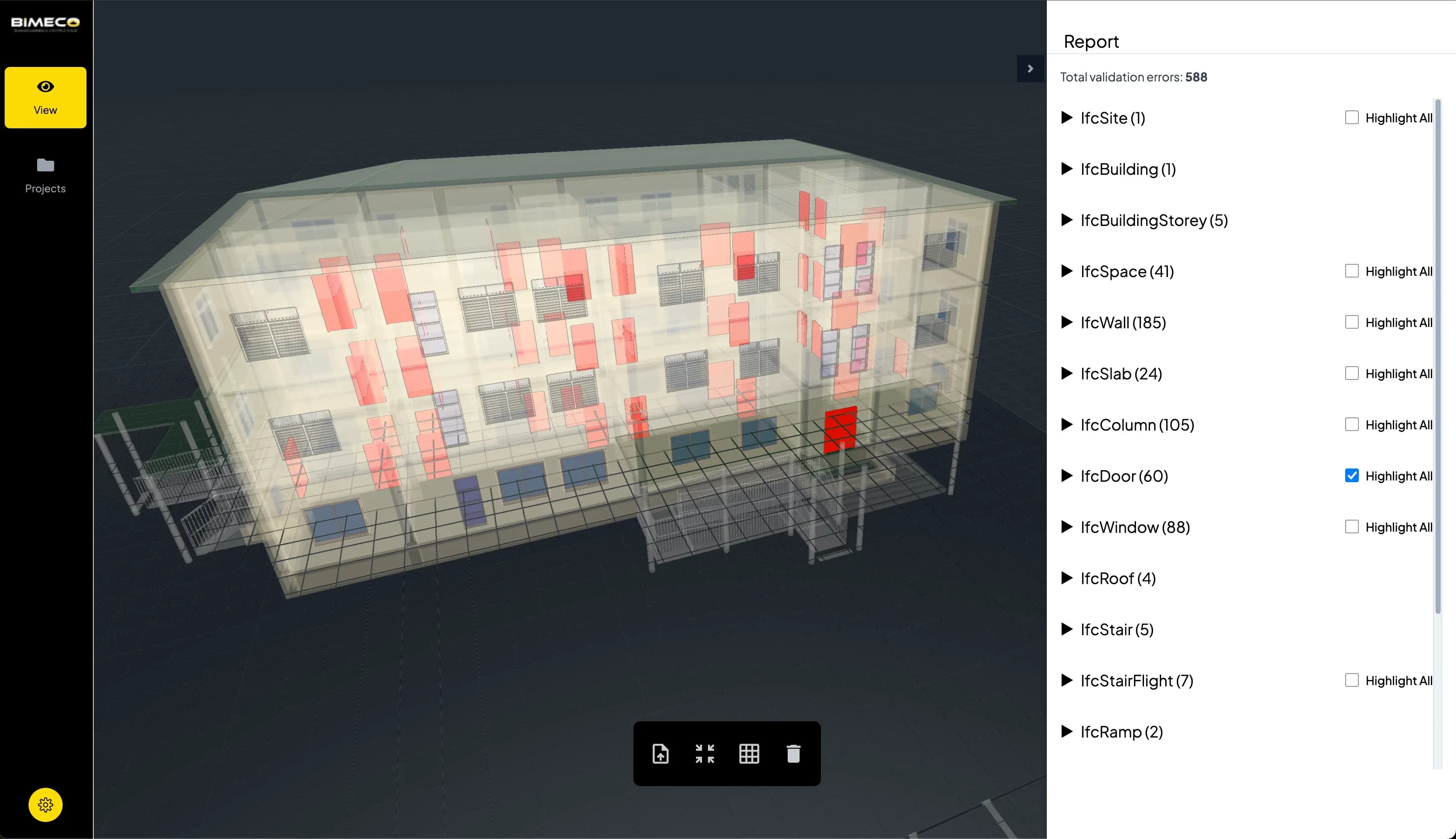- Published on
Bimeco's Roadmap for OpenBIM Software
BIM coordination remains too fragmented. OpenBIM (i.e. IFC) may be the global standard for interoperability, but working with it is still painful — especially for contractors and consultants who aren’t tech-savvy or fully staffed. At Bimeco, we’re working to make OpenBIM more usable, more accessible, and far more aligned with the realities of project delivery in Singapore and beyond.
The Challenge of BIM Adoption

The built-environment ecosystem is deeply fragmented, with each vendor relying on closed, proprietary formats. While open standards like IFC and BCF exist, support from traditional BIM software remains inconsistent. This is compounded by issues of data ownership and the heavy upfront investment needed in software licenses just to meet compliance requirements.
Even when digital tools are adopted, local compliance creates another hurdle. In Singapore, agencies like BCA, URA, SCDF, and LTA all expect different data structures in BIM models. Consultants and QPs end up spending countless hours validating and revalidating information before submission.
A cloud-native approach can ease many of these pain points. Browser-based tools simplify access, secure data with proper controls, and provide a modern foundation that evolves continuously. Our Bimeco Validator, for instance, has already gone through seven update cycles to boost speed, usability, and accuracy.
What We're Building
Here’s how our roadmap for cloud-based IFC tooling is shaping up:
IFC+SG Validator for CORENET X (Released)

Our IFC+SG Validator helps consultants, contractors, and architects catch submission errors early by validating IFC models against parameters required by Singapore’s regulatory agencies. It runs entirely in the browser, requires no installation, and is optimized for speed — even on large infrastructure models.
The validator may be updated based on the industry mapping parameters, so it stays current with the latest regulatory changes for CORENET X.
Interested users may access our demo model to better understand how the validator works in practice.
Issue Tracking + BCF Support
We’re piloting a cloud viewer that lets users open models instantly in the browser and flag coordination issues. You can comment, tag users, and assign action items — perfect for ICE sessions or distributed teams. No heavy installs, no Navisworks licenses. With BCF support, issues can be exported to any BIM software that supports the standard.
Version Control
Version control remains one of the biggest frustrations. Design changes need to be tracked with a proper audit trail to maintain accountability. We’re building a tool that compares two IFC models, automatically highlighting changes in both geometry and data.
Model Federation
A typical project involves multiple trades — architectural, structural, and services. By federating multiple IFC models in a single environment, project teams can easily share model information while limiting the exposure of their BIM data to other parties. Our platform will include strong access controls to ensure data security and compliance.
Clash Detection
Clash detection is a critical aspect of BIM coordination. By leveraging our cloud-based tools, teams can run automated clash detection checks across federated models, identifying potential conflicts before they escalate into costly on-site issues.
Join the Journey
We’re rolling out features progressively based on real-world usage and feedback. If you’re a contractor, engineering consultant, or architect looking to validate your BIM models for CORENET X compliance — we’d love to hear from you.
Related Articles
Complete Guide to CORENET in Singapore: Everything You Need to Know
CORENET guide for Singapore building approvals. Learn CORENET X, IFC+SG requirements, and mandatory BIM submission preparation.
Benefits of BIM in Data Center Design & Delivery
Learn how BIM improves data center design, construction, and operations — from MEP coordination to digital twins. Reduce rework, accelerate delivery, and improve uptime for mission-critical facilities.
CORENET X vs CORENET 2.0: Key Differences & Migration Guide (2025)
Compare CORENET X and CORENET 2.0 features, requirements, and timeline. Learn what's changed for BIM submissions in Singapore and how to prepare for mandatory compliance.